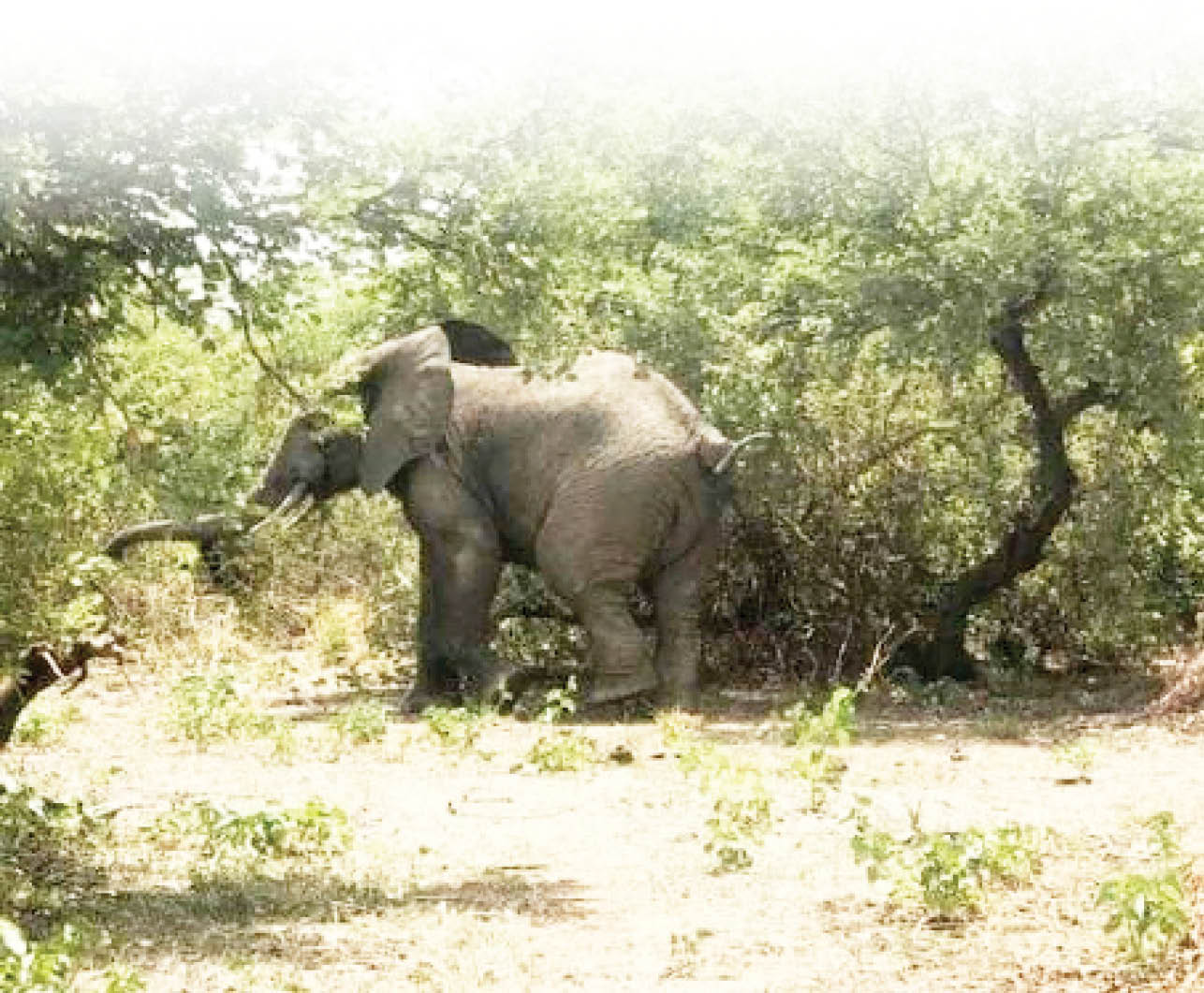The rural communities of Koko-Besse and Bagudo local government areas of Kebbi State have been made to learn to live with unusual visitors as a group of elephants, believed to have migrated from Benin Republic, found a new wildlife sanctuary along the marshy areas of these communities.
When first sighted four years ago, panic gripped the villagers as the elephants, made up of three adults and a calf, roamed around the rice producing communities of Tungan Maishinkafa, Tungan Kura, Tungan Mai’iyali and host of others across the two LGAs.
Malnutrition: Training and empowering vulnerable women to turn waste to wealth
How Bauchi woman, 52, died protecting son from bandits
In August 2018, the stray elephants that invaded Zaria Kala-Kala village in Koko-Besse LGA found their way through the banks of River Niger Forest, after they might have strayed from their memory.
The elephants, suspected to have been pushed out of their habitat by flood, are likely to have come from around Karaileje and Yamusa in Niger State and down to Bagudo before settling in Zaria Kala-Kala in Kebbi State.
The then Commissioner for Environment, Musa Kalgo, told newsmen that the state government was aware of their arrival and a directive has been issued to the ministry officials for the protection of the animals.
“The animals are closely monitored so that no harm is done to them. One is in Zaria Kala-kala and the other two are in Bagudo. It is believed that they crossed into the state from Benin Republic.”
The elephants might have been attracted to their new environment as the area is dominated by rice farms which the beasts live on. This has however raised a lot of concerns on the fate of rice production in the area as no farmer would be willing to continue farming at a loss.
Though the wild beasts seem peaceful as there has been no history of hostility against the villagers even when they are chased away by farmers from their farmlands, the intervention of the state government to take custody of the animals doused tension as rice farms became less attractive to them because government now supplies them with their best food.
The state government not only provided fund for their feed but also handed over the custody of the elephant to the traditional rulers of these communities with a view to providing them with protection against any form of aggression from farmers or any other person.
Bagudo Local Government Council supplies truckloads of sugarcane for feeding the elephants and this has helped in diverting their attention from the farmlands.
To most of the villagers, the elephants did not come to their communities to stay but upon discovery of sufficient food, they decided to remain in the area.
Of the four elephants that initially arrived, two have disappeared for the past one year, leaving behind one adult and a calf. Even the villagers cannot give account of their whereabouts, giving room for insinuation that they’ve probably gone back to where they came from.
There are conflicting reports on the two remaining elephants as some of the villagers said they were recently sighted while others said they had also left as they’d not been seen in the last couple of weeks, which according to them was unusual.
Speaking to Daily Trust on Sunday, Alhaji Maciddo, a resident of Zaria Kala Kala village Koko Besse LGA, said the elephants were first spotted in his village about three years ago, and they were three in number as against four claimed by some people.
According to him, when they have arrived his village in August 2018, members of his village as well as those from the adjoining communities were apprehensive over the arrival of the animals.
He said the elephants came through the forest along riverine areas of the River Niger, and destroyed most farms by grazing on the planted rice.
However, there was no report of hostility on human beings by the animals but farmers remained apprehensive as the elephants could go wild if locals attempted to go after them for destroying their farms.
There was however a sigh of relief when the state government came to their rescue by directing the chairman of Bagudo LGA to cater to the feeding of the elephants.
Farmlands were saved against further destruction as the animals were not only adequately taken care of in terms of feeding but their safety against poachers was guaranteed as the government had handed over their custody to the traditional rulers along the villages they roamed around.
The chairman of Bagudo Local Government Area, Aliyu Sambo, said two out of the four elephants earlier inhabiting in the area had since left, adding that they have disappeared for the past one and a half years.
According him, the animals are from one of the Nigeria games reserves as against the rumour that they were stray elephants from either Niger or Benin Republic.
“Unfortunately, even the remaining two are no longer seen as they have disappeared for some weeks now,” said the chairman.
On whether they attracted tourists when they were around, the chairman answered in the negative, saying only the government officials visited them.
“We were told that several years ago, some group of elephants visited these same communities that these ones invaded. We were made to understand that it is a common custom among elephants to visit where their ancestors once visited. So, what we saw is normal; they will come and they will also leave.”

 Join Daily Trust WhatsApp Community For Quick Access To News and Happenings Around You.
Join Daily Trust WhatsApp Community For Quick Access To News and Happenings Around You.

